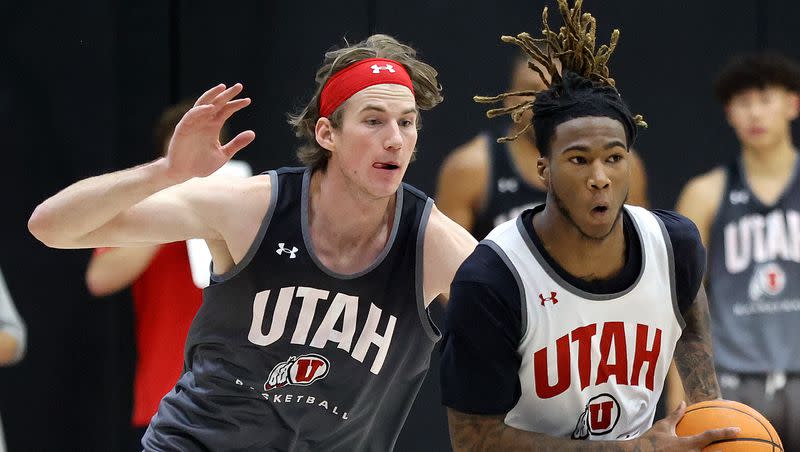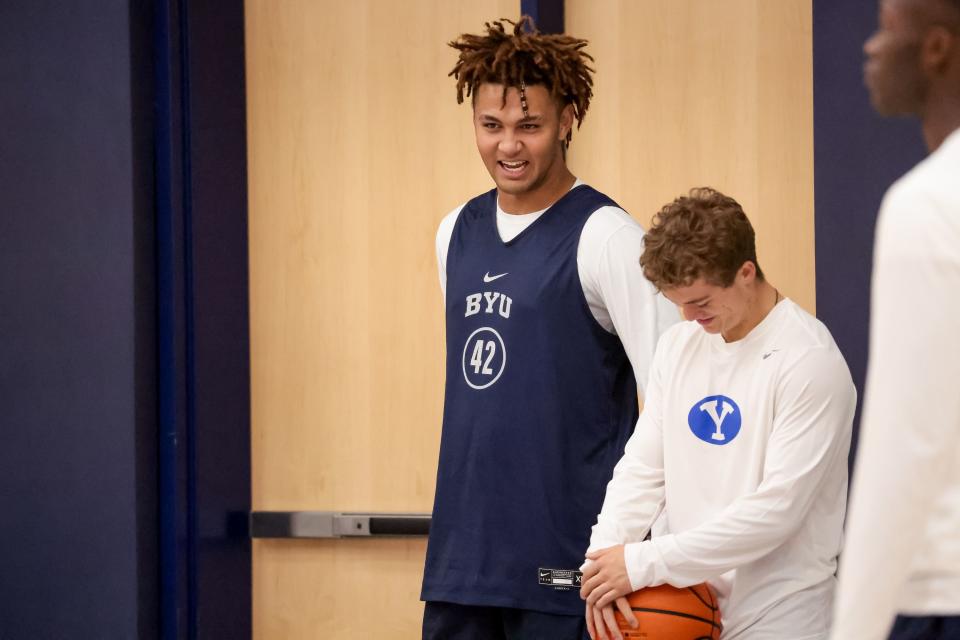Court ruling grants immediate temporary eligibility for two-time transfers, like Utah’s Deivon Smith

A court ruling has seemingly cleared the way for NCAA players on their second transfer to play immediately without a transfer waiver, at least for the next two weeks.
West Virginia and several other states sued the NCAA earlier this month, alleging that the transfer waiver process violates antitrust law. On Wednesday, U.S. District Judge John Preston Bailey in West Virginia issued an order barring the NCAA from enforcing its transfer waiver process for two weeks, meaning players that had their transfer waiver denied, such as Utah basketball player Deivon Smith, or are waiting for their transfer waiver, like BYU’s Marcus Adams Jr., would immediately be eligible to play.
“As a result of today’s decision impacting Division I student-athletes, the association will not enforce the year in residency requirement for multiple-time transfers and will begin notifying member schools,” the NCAA said in a statement.
The NCAA also clarified that there would be no retroactive punishment by playing the impacted players during the next two weeks if the court order is overturned, according to Nicole Auerbach of The Athletic.
Related
“A preliminary injunction hearing is set for Dec. 27, when the judge is expected to make a more permanent ruling in the case,” Yahoo’s Ross Dellenger reported.
However, a day after the NCAA clarified to Amanda Christovich of Front Office Sports that if the court ruling is overturned, the games played in the two-week period would not count against their eligibility, the organization reversed course.
On Thursday, the NCAA said that if an impacted athlete plays during the next 14 days and the ruling is overturned, those games would count toward their eligibility, meaning they would lose a season of eligibility.
Smith transferred from Georgia Tech to Utah in May after the Jackets parted ways with coach Josh Pastner. It was Smith’s second transfer of his career — he transferred from Mississippi State to Georgia Tech after his freshman season — but since he transferred after a coaching change at Georgia Tech, a waiver from the NCAA seemed like it had a chance to be granted.
On Dec. 4, news broke that Smith’s transfer waiver had been denied by the NCAA.
“I’ll give Deivon a ton of credit. He’s been so professional about everything and handled it like a man, handled it like a real pro,” Utah coach Craig Smith said during an ESPN 700 coaches show on Dec. 4. “It’s not over yet, there’s no finality yet. He’s worked really, really hard and continues to stay ready should the appeals committee rule in his favor.”
Smith averaged 8 points, 5.6 rebounds and 3.7 assists in 24.8 minutes per game last season with Georgia Tech.
BYU’s Adams Jr. — who enrolled at Kansas before transferring to Gonzaga, then BYU in the span of less than a year — is also waiting on an NCAA transfer waiver.
Editor’s note: This story has been updated with new information from the NCAA after it reversed course Thursday and said that games played during the 14-day period by impacted players would count against eligibility.


